Gabbi knew that real estate was the right career from the start. She is now dual licensed in both Kentucky and Ohio. She had her first sale within a month of getting licensed and hit her first million in volume within her first 6 months. She will have her real estate license for the rest of her life. Call her anytime if you have questions about becoming a real estate agent. She loves to share her passion for real estate with others!
What Should I Do with Each Commission Check?
First off, congratulations on earning a commission check! It is such an amazing feeling when your hard work pays off. Let’s talk about how you should be spending each paycheck as it comes in. As an independent contractor, you must be more organized and more determined than someone who has an annual salary. You need to plan to ensure you are looking out for your future self each month.

Paycheck Planning Categories:
- High-Interest Debt
- Emergency Fund
- Retirement
- Monthly Living Expenses
- Business Operating Expenses
- Investments
- Fun Spending
1. High-Interest Debt
What is high-interest debt? High-interest debt includes any loans or debts that have an interest rate higher than 4%. This could include student loans, credit card debt, or any other personal loans. You want to pay this off first before you start contributing to other spending categories. This is because these debts are not contributing to you building wealth in the long run so they need to be taken care of first.
2. Emergency Fund
When you are working as an independent contractor you do not always have a steady income each month. You need to plan so that when emergencies come up, you do not have to use a line of credit that could potentially increase your high-interest debt. You should be contributing at least 8% of each paycheck to a high-interest saving account each month. Aim to save at least 3-4 months of expenses in this account to ensure you have enough savings to keep you afloat during times of uncertainty.
3. Retirement
Someone who has a salary-paid job usually has a retirement plan built into their paycheck system that is automatically taken out each month or even matched by their company in a 401K. As an independent contractor, you need to make sure that you have a retirement plan set up and you need to manually contribute to this account each time you get paid. To start, I would make sure that you either have a Roth IRA or a Traditional IRA that you are maxing out each year. Typically, an IRA is maxed out at $6000 a year. $6000 a year means you’d need to contribute at least $500 each month.
4. Monthly Living Expenses
Make sure you are keeping track of how much you are spending each month on living expenses.
These expenses should include:
- Monthly mortgage payment/or rent
- Monthly electric bill
- Monthly water/trash/gas bill
- Monthly wi-fi bill
- Monthly grocery bill
- Monthly gas bill
- Monthly parking bill
Track these expenses each month and try to take notice when you are spending too much in certain categories. Can you save money by using public transportation to lower your gas bill when gas prices spike? Can you lower your electric bill each month by making sure your AC is never set below 70 degrees? Knowing what you must spend each month to keep the lights on is going to allow you to set realistic income goals. You will be able to easily detect when you are overspending on your living expenses if you know what your bottom line is.
5. Business Operating Expenses
As an entrepreneur, you know that you must spend money to make money. What business expenses are you incurring each month?
Examples of business operating expenses:
- Real estate licensing fees/continued education
- Monthly desk fees
- Bi-annual MLS fees
- Bi-annual real estate association fees
- Client entertainment expenses
- Closing gifts
- Marketing expenses
- Real estate CRM fees
- Real estate social media tools
- Office supply expenses (printing, stamps, pens, paper, etc.)
How are these expenses contributing to your business? Are there any business generating expenses that are not contributing to your bottom line? Knowing these expenses and how they are contributing to your business is important to know when maintaining a budget and/or setting specific income goals.
6. Investments
Investments are a personal choice. There are so many ways that you can invest your money and see a return year after year. There are long-term investments, short-term investments, low-risk, and high-risk investments. You should be able to decide what’s best for you by determining how much you know about investing and how much additional time you have to dedicate to your portfolio. If you have experience in investing, feel free to explore individual stock options and take higher risks on short-term investments.
If you do not have any investing experience, choose long-term stock options, and contribute a set amount each month to a diversified index fund. If you don’t have that much money left over to invest, that’s okay. Remember that something is better than nothing and that you can increase the amount you put away in investments over time. You want to focus on the first spending categories before contributing to general investment strategies.
7. Fun Spending
Why do we work? To spend money on things that bring us joy. You only have one life and while you should prepare and save money each month, you should also spend money on things that enrich your life. This can be anything from going out with friends, going to the movies, traveling, or even a nice purse. Either way, prioritize your passions and make it a point to spend a portion of your paycheck doing things that add value to your life. Be mindful of what you are spending your money on each month and take notice of any expenses that can be eliminated because they are no longer bringing you joy. Then you can spend that money on something that makes you happy.
I hope that this article helped you look at your own spending and dissect where you can make positive changes. Financial success isn’t built in a day. It’s small wealth-generating habits that accumulate over time and eventually set you ahead of the pack so that you can enjoy financial independence. Whether you have a large income, medium income, or a small income you can still set yourself up for success by planning for your future and paying yourself first. Check back to the Career Corner for more tips on money management in the future.
About the Author
Recent Posts
Let's Stay Connected
Follow us on and become part of the PREC community
Never miss a tweet by connecting with us on Twitter
Check our our posts about trends in real estate industry and market










